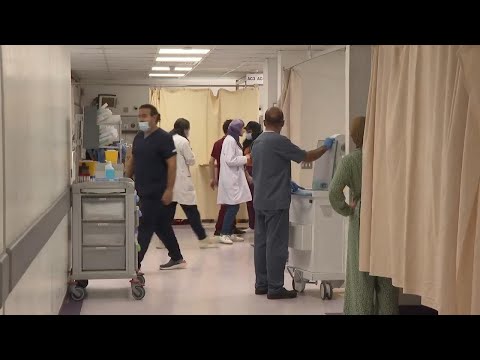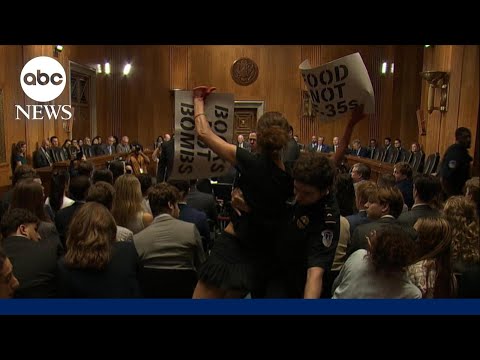(15 Aug 2024)
RESTRICTION SUMMARY:
ASSOCIATED PRESS
Beirut, Lebanon – 14 August 2024
1. Various of nurses and patients at Beirut Rafik Hariri Governmental University Hospital
2. Patient in emergency department
3. Close of medical monitor
4. Various of staff moving and unloading trolley with boxes of medicine
5. Close of boxes of medicine
6. Dr Jihad Saadeh in his office
7. Close of hands
8. SOUNDBITE (Arabic) Dr. Jihad Saadeh, General Manager of Beirut Rafik Hariri Governmental University Hospital:
“We tried our best to store medical, surgical and nutritional materials in the hospital so that if the roads were cut and we could not get materials to the hospital for a certain period, of course, the hospital could be able to cope with the situation. Of course, the financial situation was a very, very big obstacle, the economic crisis that exists in the country has, of course, affected the hospital and has had a great deal of impact on the hospital. I mean, without the assistance that we have received, we would not have been able to do anything.”
9. Close of hands
10. SOUNDBITE (Arabic) Dr. Jihad Saadeh, general manager of Beirut Rafik Hariri Governmental University Hospital:
“Nobody can predict the burden that we will bear, only God knows. Because we do not know the power of the strikes (by Israel), neither its duration, nor what will be the target, whether it is only civilians? I do not know what will happen. But our expectations are that if (we receive) 50 wounded people of different conditions per day, we can last for 10 days. It depends on the circumstances.”
11. Various of sign reading (English) "Red Zone" at emergency entrance
12. Main entrance
13. Patients leaving hospital
14. Patients and staff at Mount Lebanon Hospital University Medical Centre
15. Staff at storage department for medications
16. Close of medicine
17. Boxes of medicine
18. SOUNDBITE (Arabic) Gracia Dona, nursing director at Mount Lebanon Hospital University Medical Centre:
“In all hospitals, we are required to be prepared. But now the preparations that have been made are on a large scale with the Ministry of Health, with WHO, with MCM, mass casualty management. We made a plan so that we can be an effective hospital in the case of patients in large numbers.”
19. Various of MRI (Magnetic Resonance Imaging) machine
20. Patients at hospital
21. SOUNDBITE (Arabic) Dr. Elie Gharios, general manager of Mount Lebanon Hospital University Medical Centre:
“Due to its (Mount Lebanon Hospital University Medical Centre) geographical location, we are prepared for all kinds of disasters that can be expected in this country. I can’t imagine that anything will happen despite all that has been circulated. However, if anything happens, the preparations for Mount Lebanon Hospital, as we say in English it is ‘huge’, and we will be able to receive 100 injured people every day, among them thirty with very critical cases.”
22. Wide of emergency entrance
23. Green zone area
24. Hospital exterior
25. Close of sign
STORYLINE:
Hospital chiefs in Lebanon said Wednesday that they have built up and prepared medical supplies and capacity, as tensions between Hezbollah and Israel escalated amid the war in Gaza.
At Beirut Rafik Hariri University Hospital, facilities were divided into red, green and grey zones to receive casualties, with a special and independent zone for biological and phosphorous bombing casualties.
Surgical and nutritional materials were also stored in case "roads were cut," Dr. Jihad Saadeh, the general manager of the hospital, said Wednesday.
Find out more about AP Archive: http://www.aparchive.com/HowWeWork
Twitter: https://twitter.com/AP_Archive
Facebook: https://www.facebook.com/APArchives
Instagram: https://www.instagram.com/APNews/
You can license this story through AP Archive: http://www.aparchive.com/metadata/youtube/159737dfae2b44118adf6cbc7fd65362
Author: AP Archive
Go to Source
News post in August 20, 2024, 6:04 am.
Visit Our Sponsor’s:
News Post In – News





